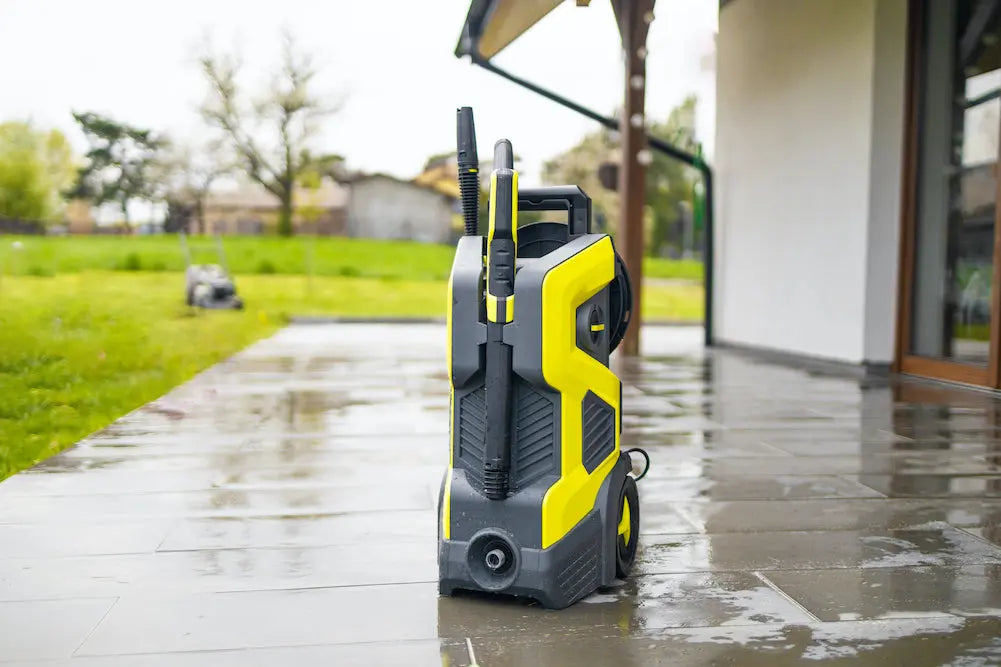Pressure washers are powerful tools designed to clean surfaces quickly and efficiently. Ryobi, a well-known brand in the power tools industry, offers a variety of pressure washers suited for different tasks and needs. Whether you’re a homeowner looking to spruce up your outdoor space or a professional in need of a reliable machine, Ryobi has a pressure washer for you. This guide will help you understand the different types of Ryobi pressure washers, their key features, maintenance tips, and how to choose between electric and gas models.
Types of Ryobi Pressure Washers
Electric Pressure Washers:
- Light-Duty (1600-2000 PSI): Ideal for cleaning cars, outdoor furniture, and small patios. These models are perfect for occasional use around the home.
- Medium-Duty (2000-2700 PSI): Suitable for more extensive cleaning tasks like driveways, decks, and larger patios. They offer a balance between power and convenience.
- Heavy-Duty (2700+ PSI): Designed for tough cleaning jobs and larger areas. These washers can handle stubborn stains and are still relatively easy to use and maintain.
Gas Pressure Washers:
- Medium to Heavy-Duty (2500-4000 PSI): Gas models provide more power and portability, making them suitable for large and demanding cleaning jobs. They are perfect for professionals and serious DIY enthusiasts.
Key Features of Ryobi Pressure Washers
- PSI (Pounds per Square Inch): Indicates the pressure of the water. Higher PSI means more cleaning power, which is essential for removing tough stains.
- GPM (Gallons per Minute): Measures the water flow rate. Higher GPM means more water is used to clean surfaces faster, making the task more efficient.
-
Nozzle Options:
- 0° (Red): For tough stains and high-pressure cleaning.
- 15° (Yellow): For heavy-duty cleaning of concrete and brick.
- 25° (Green): General-purpose cleaning.
- 40° (White): For delicate surfaces like cars and windows.
- Soap Nozzle (Black): For applying soap.
- Portability: Features like wheels and handles for easy movement, making it convenient to transport the washer around your property.
- Detergent System: Built-in tanks or siphon tubes for applying cleaning solutions, which enhance the washer’s cleaning capabilities.
- Accessories: Extensions, surface cleaners, turbo nozzles, and more, allowing you to tailor the washer to your specific needs.
Popular Ryobi Models
-
Ryobi RY142300 (Electric):
- 2300 PSI, 1.2 GPM
- Brushless motor for enhanced performance and longevity
- Onboard detergent tank for convenient soap application
-
Ryobi RY141900 (Electric):
- 2000 PSI, 1.2 GPM
- Compact and lightweight design
- Includes three nozzles for various cleaning tasks
-
Ryobi RY80940B (Gas):
- 3300 PSI, 2.5 GPM
- Honda GCV190 engine for reliable power
- Includes five nozzles for maximum versatility
Maintenance Tips
- Regular Inspection: Check hoses, nozzles, and connections for wear and tear to prevent leaks and ensure optimal performance.
- Proper Storage: Store in a dry place and drain water to prevent freezing damage, especially during colder months.
- Oil Changes (Gas Models): Regularly change the oil as per the manufacturer’s recommendations to keep the engine running smoothly.
- Clean Filters: Keep the air and water filters clean to maintain optimal performance and prolong the life of the washer.
FAQs
-
What is the difference between electric and gas pressure washers?
- Electric Pressure Washers: Quieter, lighter, and ideal for small to medium cleaning tasks. They require less maintenance and are perfect for residential use.
- Gas Pressure Washers: More powerful, portable, and suitable for larger, more demanding tasks. They offer higher PSI and GPM but require more maintenance and are louder.
-
How do I choose the right PSI for my needs?
- Light-Duty (1600-2000 PSI): Suitable for cars, outdoor furniture, and small patios.
- Medium-Duty (2000-2700 PSI): Great for driveways, decks, and larger patios.
- Heavy-Duty (2700+ PSI): Ideal for large areas and tough cleaning tasks like removing paint and cleaning second-story exteriors.
-
Can I use hot water in my Ryobi pressure washer?
- Most Ryobi pressure washers are designed for cold water use only. Check the user manual for your specific model to confirm.
-
What kind of detergent should I use?
- Use pressure washer-specific detergents to ensure compatibility and effectiveness. Avoid using bleach or other harsh chemicals that can damage the washer.
-
How do I maintain my pressure washer?
- Regularly inspect and clean nozzles, hoses, and filters.
- Store the unit in a dry place and ensure it’s properly winterized to prevent freezing damage.
- Follow the manufacturer’s recommendations for oil changes and other maintenance tasks, especially for gas models.
Good Features
- Durability and Reliability: Ryobi pressure washers are built to last with robust materials and components.
- Ease of Use: User-friendly designs with convenient features like onboard detergent tanks, easy-start systems, and quick-connect nozzles.
- Portability: Many models come with wheels and ergonomic handles for easy maneuvering.
- Wide Range of Accessories: Options for turbo nozzles, surface cleaners, extension wands, and more to enhance versatility.
- Warranty: Ryobi offers competitive warranties, providing peace of mind and ensuring support for their products.
Who Should Choose Electric Over Gas?
Electric Pressure Washer:
- Residential Use: Ideal for homeowners who need a reliable machine for occasional light to medium cleaning tasks.
- Noise-Sensitive Areas: Suitable for neighborhoods or areas where noise can be an issue.
- Low Maintenance: Perfect for users who prefer a machine that requires less upkeep.
- Indoor Use: Can be used indoors or in enclosed spaces where ventilation is limited (for models with low emissions).
Gas Pressure Washer:
- Heavy-Duty Tasks: Best for large areas and demanding cleaning jobs, such as removing graffiti, cleaning large driveways, or prepping surfaces for painting.
- Portability: Ideal for use in areas without easy access to electrical outlets.
- Commercial Use: Suitable for professionals who need a powerful, durable machine for frequent use.
- Versatility: More adaptable to a variety of tasks with higher PSI and GPM ratings.
Conclusion
Ryobi pressure washers offer a variety of models to suit different cleaning needs, from light-duty electric units for small tasks to heavy-duty gas models for larger projects. Understanding the key features, maintenance requirements, and choosing the right type for your specific needs will help you get the most out of your pressure washer. Whether you’re a homeowner looking to maintain your property or a professional needing a reliable cleaning solution, Ryobi has a pressure washer that fits your needs.








Reader Interactions